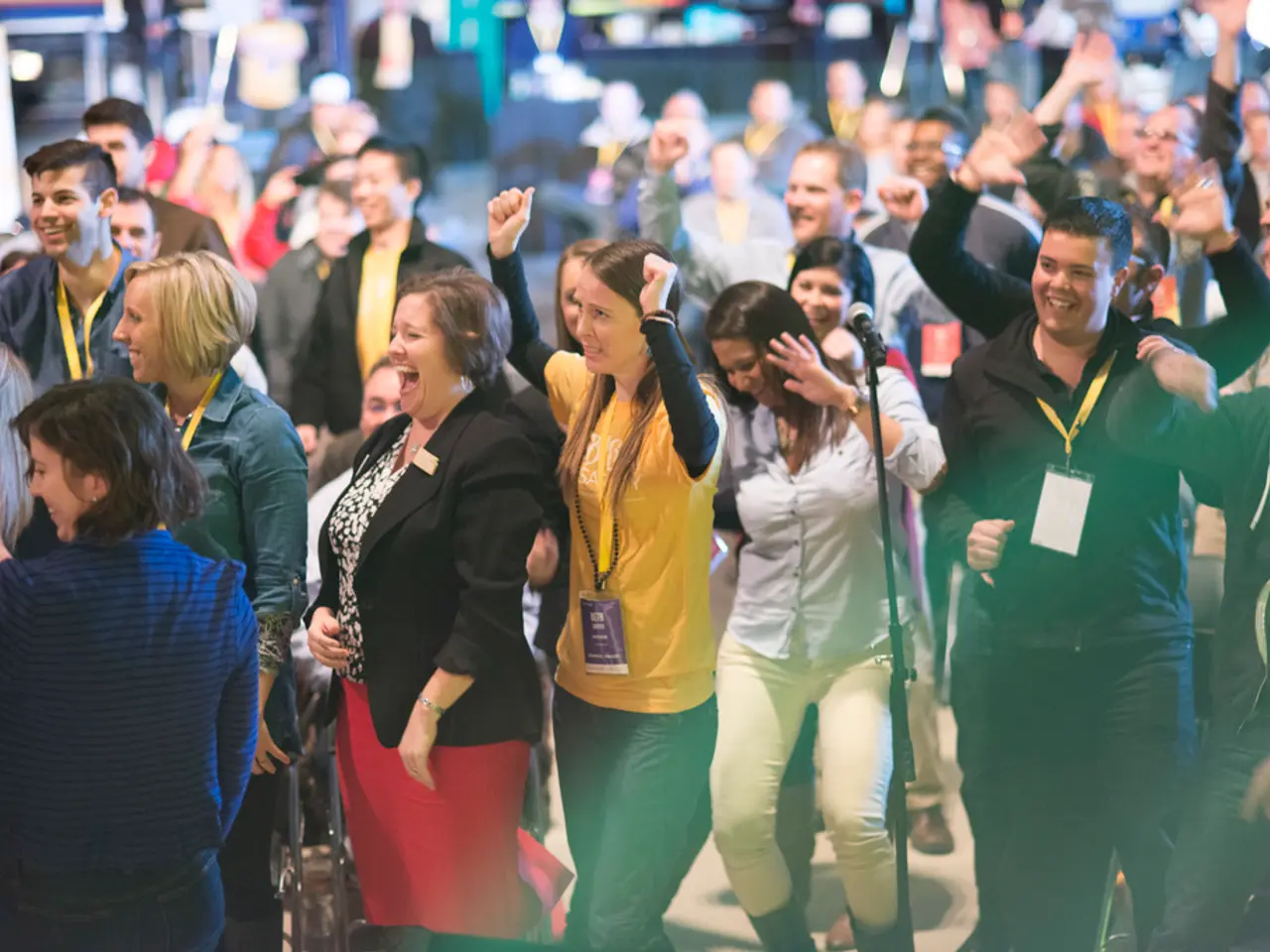"Comedians grapple with ethical dilemmas as they contemplate incorporating criticisms of Israel's conflict in Gaza into their stand-up acts"
In the world of stand-up comedy, tackling sensitive and complex topics is par for the course. However, for some Muslim comedians, the Israel-Gaza conflict has proven to be a challenge due to its complexity, potential backlash, and the risk of misunderstanding from diverse audiences.
Halal Fried Comics, a comedy night founded in April 2024 to provide a platform for Muslim acts to showcase their material to a largely South Asian audience, is one such example. Founder Safwaan Rahman admits that comics have been cautious when it comes to speaking about Israel-Gaza, fearing the wider consequences.
Similar sentiments are shared by performers like Salman Malik, who has organized three comedy fundraisers for Gaza over the past year but has experienced online backlash as a result. Malik also expresses concern over England's increasingly harsh protest laws, particularly since the term "coconut" in his act is being weaponized.
The Irish-Palestinian performers Nadia Said and Maysoon Zayid also feel that certain topics are off-limits due to negative jokes about the situation in Gaza. Zayid has had several corporate gigs cancelled after addressing American political responses to the Gaza conflict.
This hesitancy reflects a broader pattern of self-censorship and silencing in spaces related to Israel-Palestine discourse, as seen in other fields like academia, where criticism can lead to penalties or social exclusion. Some Muslim comedians prefer to focus their routines on other personal and cultural themes rather than overt political commentary on Gaza, highlighting the struggle of balancing activism, humor, and audience reception.
Audiences at Halal Fried Comics dictate the show, and when a brown, bearded man like Rahman performs, it can be risky going into majority white spaces. Aneesa, a first-time Halal Fried Comics attendee, shares that she's not sure how what's happening in Gaza could be funny and prefers to be around like-minded people and have fun.
Meanwhile, Egyptian-American comic Bassem Youssef has consistently addressed the war and consequently faced accusations of antisemitism. The Edinburgh Festival Fringe is currently taking place, but it remains to be seen if any comedians will take the risk to address the Israel-Gaza conflict in their acts.
[1] https://www.theguardian.com/world/2024/jun/01/israel-gaza-conflict-silences-muslim-comedians-from-speaking-out [2] https://www.theatlantic.com/politics/archive/2024/jun/self-censorship-israel-gaza-conflict-muslim-comedians/632713/
Entertainment can be a delicate territory for Muslim comedians when addressing the Israel-Gaza conflict, as they often face potential backlash, misunderstandings from diverse audiences, and the risk of wider consequences, like cancellations or accusations of antisemitism, as seen in the case of Egyptian-American comic Bassem Youssef. In light of these challenges, some comics prefer to focus their routines on personal and cultural themes, highlighting the struggle of balancing activism, humor, and audience reception.







